58 results for "gmos"
Sort by:
Filters
Reset all filters
Expand all filters
Agricultural Labor
Agriculture Technology
Animal Welfare
Breakfast
Cattle & Dairy
Climate Change
Conservation
D2D on the Farm
D2D Team
Dessert
Diet
Drinks & Smoothies
Food Business
Food Production
Food Regulations & Policy
Food Security
Food Technology
Health and Nutrition
Ingredients
Main Dish
Science & Research
Side dish
Soil and Crop Management
Transcript
Wars & Conflict
Show All

Digging into GMOs: Mintel's Megan Stanton
Dirt to Dinner talked with Megan Stanton of Mintel's Food & Drink division to hear why consumer perceptions on GMOs are changing.

5 Benefits of GMOs
GMOs are one of the most controversial topics in mainstream culture, even though they are proven to have many benefits for our farmers, consumers, and the environment.

Public Opinion: A Misguided Discussion on GMOs
It started as pleasantries in a small-town parking lot, but when GMOs came up, the conversation took a turn for the worse. What happens next is a clash between science, opinion, and its effect on our food system.
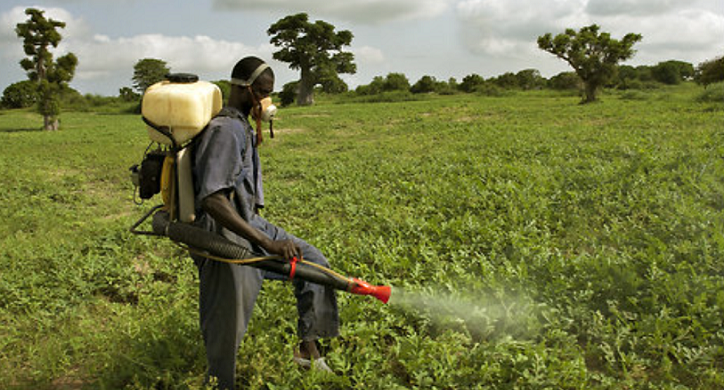
Are GMOs Bad for the Environment?
On the contrary. In fact, here's a different way to spell the word green: GE – Genetic Engineering. GE technology includes genetically modified organisms, which some critics claim harm the environment. But in reality, GMOs help farmers use pesticides responsibly, conserve water and increase soil health while increasing their crop yield.

Can I Get Sick from Animals Fed GMOs?
If I eat meat or dairy and those animals have eaten GMO corn or soybeans, am I ingesting GMOs, too? Will I get sick? And what about the animals...is GMO feed harmful to them?

Can GMOs Make Me Sick?
Concerned if GMOs are harmful to your health? We dug into exactly what happens in our bodies when we eat food that has been grown with a GMO.

GMOs are Confusing: A Recipe for Understanding
Consumers continue to be confused about GMOs. What if we told you that enhancing your banana bread recipe with additional nutrients is similar in concept to adding a gene to a plant?

What's the Difference between GMOs & CRISPR?
After our post on EU and CRISPR last week, the Dirt-to-Dinner team received requests to simplify the difference between GMO and CRISPR technology. Here is a quick summary to help you differentiate between the two.

In the News: Bill Gates gives GMOs a vote of confidence
Bill Gates has publicly announced his support of GMO technology to raise awareness and highlight the benefits for a growing population.

D2D on the Farm: GMOs
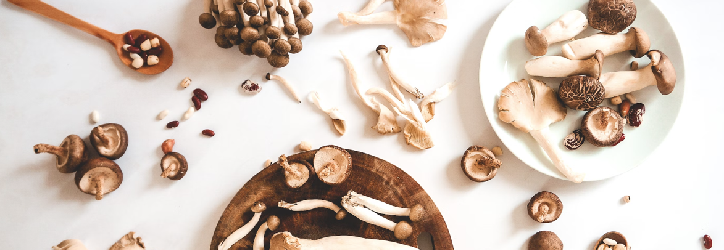
The Ins & Outs of Mushroom Products
Mushrooms have gained a lot of attention for a reported array of benefits. We're delving into how to assess supplement quality and the role of third-party verifiers in ensuring their authenticity and effectiveness.

Dirty Tactics from EWG’s Dirty Dozen
EWG recently released its annual “Dirty Dozen” produce list, which stokes fears of eating produce with pesticide residues...as if we don't already have enough to fear with COVID. But is EWG right? Or do the benefits of eating produce to maintain our health far outweigh these concerns?

Tufts' Befuddling "Food Compass"
Really smart people have told me that occasional bouts of confusion are normal as we age, and I’ve taken comfort in that. But I’ve got to admit I was thrown for a very serious loop when I came across the Tufts Food Compass Score...

China's Plight with Food Independence
Chinese President Xi Jinping's ambition to reshape global world order and replace the U.S. as global economic and military leader misses one key element: China's dependence on capitalist and democratic nations for food security.

5 Things You Don't Need to Worry About this Holiday Season
The holidays are a busy time for all of us, but there are some things we shouldn’t be concerned about! Find out what they are here!

The Ins & Outs of Climate-Conscious Eating
Think you know what climate-conscious eating looks like? Think again. Its complexities extend far and wide, from effects on soil, water use, and farming practices, to just name a few...

Milk: Should you go 'alternative'?
With so many substitutes for milk to choose from, it can be difficult to know which is best. How do mainstream milk alternatives compare nutritionally?

Science or Suspicion: Which Dictates Gene Editing's Future?
The British government’s proposed regulations governing gene editing have reignited the simmering debate. But while talks rage on, the world’s food system still waits and waits.

Goodbye “GMO”, Hello “Bioengineered”
Have you seen the new GMO labels? As of January 1st, the USDA requires food companies to label products as “bioengineered” if any ingredients are genetically modified. What will this mean for GMOs and consumer acceptance?

How Smart People Change Their Minds
It's easy to see when the choices others make are bad for them. However, our brains try to protect us from disappointing or conflicting info, resulting in overconfidence with our own abilities and beliefs than we should have.

The Caveman Diet: Should Our Diets Really Evolve?
We all care about diet and the important role it plays in our health. But how do we know what choices to make when our heads tell us one thing and our natural instincts might say something very different?

FFA's Nicholas Mello: The Importance of Seed Science
In partnership with the Future Farmers of America, we will be highlighting a series of finalists from 2020 and 2021 to share their stories and passions. Today, read about Nicholas Mello of California and his hybrid corn seed experimentation.
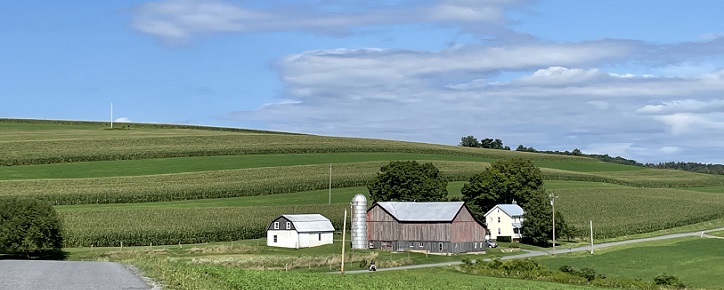
Can Rural America Lead in AgTech?
Lucy spoke to Pennsylvanian business leaders and politicians about rural America leading the way for the future of agricultural innovations. Here is her speech...

5 Differences Between GMO and CRISPR
GMO and CRISPR technologies help farmers grow food with fewer pesticides, less water, and less impact on the environment. But, there are differences between the two. Do you know what they are?

Celebrating World Health Day: 5 Foods to Add to Your Diet
In celebration of World Health Day, we’re going to tell you the five foods that we should all incorporate into our diets to ensure a healthy heart, mind, and body.

5 Food Labels to Look Out For
When you go to the grocery store, you'll see an array of different labels plastered all over your food, each one with a perceived connotation of whether it's good or bad. But what consumers don't know is the truth behind these labels and what they really mean.

Will New Wheat and Barley Genomes Help Feed the World?
Scientists have discovered a new genetic variation in both barley and wheat through genetic sequencing. This global effort to breed higher-yielding crops can help feed a growing population.

Meeting Demand: A New Type of Salmon
There's a new breed of salmon that requires less food and water, takes less time to grow, and supports the rural American economy all while having the same health benefits as farmed or wild-caught salmon. Will you buy it?

How COVID Affects Global GM Crops
COVID-19 has ramped up vaccine production using genetic modification technologies, but ag has seen the opposite effect on GM approval for crops. And no one's been hit harder than farmers in developing countries where significant progress came to a screeching halt.

D2D's "Nice List" for the Holidays
Here's our "nice list" of helpful posts to keep you healthy, happy and in-the-know through the holidays and into the new year. Everything from delicious, low sugar recipes to global trade and alternative proteins, we've got you covered!

2 Trade Deals and Plant Food in a Pear Tree: Top News in 2019
2019 has been a wild ride! News about our food and how we get it – from dirt to dinner – have had us on the edge of our seats...

The Dirt to Dinner Team: Giving Thanks
The D2D Team has a lot to feel grateful for this holiday season! Here are a few things that we'll be giving thanks to this year as we celebrate with our family and friends.

Packing Social Concerns in the Lunchbox
As a scientist and mom of three young kids, back to school to Dr. Evanega means preparing her kids' lunches with their tastes - and global considerations - in mind.

Don’t Be Fooled by Food Labels
There are so many food labels today: Organic, Grassfed, No Hormones or Antibiotics added, Non-GMO, Certified Humane…the list goes on. D2D's here to help you understand them and to know when you’re being fooled!

Pet Food for Thought
The FDA recently stated that several specialty dog food formulations have led to canine heart disease. With so many food choices today, what should we feed our pets?

Organic Farming & Gene Editing: Oxymoron or Tool for Sustainable Ag?

The Farm Babe: An Ag Love Story
This is the story of the agricultural advocate, Michelle Miller, or better known as "The Farm Babe". D2D learns first-hand about Michelle's journey from the big city to a rural farm in Iowa, and how it completely changed her views on our food system.

My Nightmare Meal: A Personal Reflection of Our Food System
Ag Secretary Perdue recently told us not to fear our food. Have we really come to the point that people must be told by a cabinet-level government official that their food supply is okay to eat?

What's Happening in Ag?
So much is going on along the path from dirt to dinner that it’s almost impossible to keep up with all the newsworthy and significant developments on the farm. From domestic and foreign markets to changing food trends to exciting innovations food production, to policies and regulations affecting our food system, and more. So let’s take a quick look at the headlines catching our eyes recently.

The Green New Deal: Where's the Beef?
The Green New Deal calls on the U.S. to take a leading role in reducing emissions through “economic transformation.” The references to farming and agriculture’s footprint have generated a lot of discussion among the farming community.

Saving Chocolate, One 'Kiss' at a Time
HAPPY VALENTINE'S DAY! As you enjoy sweet chocolate confections today, consider this – the cacao tree is under threat from deforestation, pests and diseases, and climate change. Can it be saved by scientific intervention? Ethos Chocolate has come up with a clever promotion to help consumers embrace the possibility.
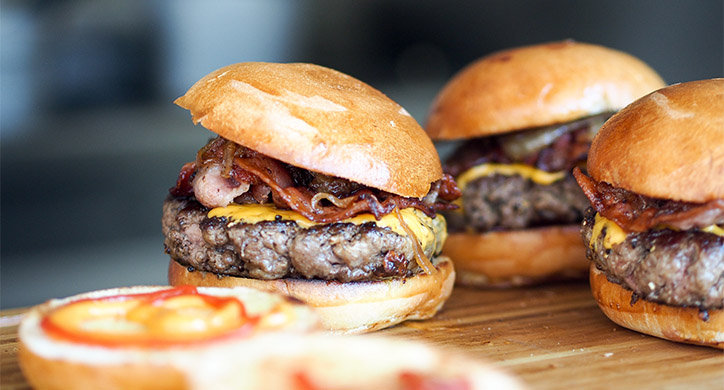
What's in a name? In this case, quite a bit.
We need protein as part of a healthy diet— and many of us turn to meat as a source. Satisfying the projected growth in worldwide protein demand is a complicated task and doesn’t lack for controversy. Cell-based meat, an innovative protein, is being accepted as a viable component of a healthy, robust protein source. But what should we call it?
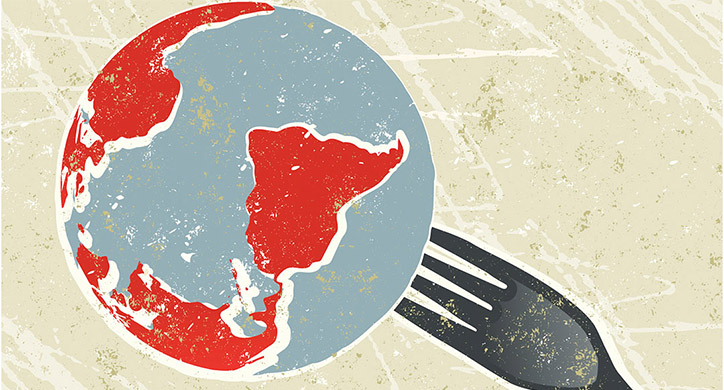
The Year in Food News: What To Know Before 2019
Food production. Trade disputes. Scientific debates. New technologies. Legislation and public policy. Global hunger. Food waste. Food safety. These newsworthy food-related topics have made major headlines this year. Let’s look back and see where some of them stand before we enter 2019.

In the News: European Court Hinders CRISPR Technology
The European Court of Justice recently ruled that CRISPR technology must undergo the same extensive regulatory approval process as GMOs. This legislation will significantly delay CRISPR’s application in EU farming and will hinder the development of better crops for a growing world.

How will CRISPR impact our food?
CRISPR-Cas9 will soon surpass GMOs as the most influential gene editing technology for food production. Let’s explore how this technology will change the way farmers grow their crops and enhance the food we eat today.

Genetic Engineering: The Future Insecticide?

There Is No Such Thing As A Dirty Vegetable
Have you heard the buzz about the dirty dozen? These fruits and veggies have gotten a bad reputation and consumers are being told to buy them only when organically grown. But is this fear justified? Let’s get down to business and discuss pesticide residues.
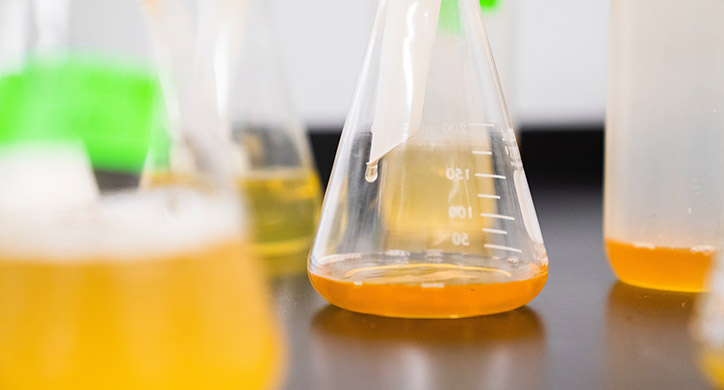
Toxins and Toxicants - how much is too much?
What makes a substance toxic? Consumers are led to believe that anything deemed “toxic” is bad for your health— whether it be household cleaning products or the food you eat. Alternatively, any food or product that is completely non-toxic and free of chemicals can do no harm. Is this always the case?

Stonyfield's Marketing Misstep
Stonyfield yogurt is under fire. After posting a controversial video marketing their organic yogurt as “safer for children”, consumers fought back…and rightfully so! Fear-based marketing is misleading and harmful to customers. Companies that misrepresent the science and inappropriately use these tactics can actually prevent sustainability efforts and technological improvements.

Are There Hormones in Milk?
Are there hormones in milk? Yes! All milk contains naturally-occurring hormones. But, consumer perception is that milk from cows treated with rBST may cause early puberty in children or increase the chances of getting cancer. This is not true. How did milk get such a bad reputation and what does the science say?

Sustainable Ag Series: Governments
What does sustainability mean to government regulators? How do local or national governments work with NGOs, farmers, corporations and consumers to affect agricultural sustainability and policy? Let’s continue our investigation into agricultural sustainability and all that it encompasses…

Sustainable Ag Series: Corporations
What does sustainable agriculture mean to big corporations? Do corporations reach across the aisle to government regulators, NGOs, farmers, and consumers to achieve their goals? And how does that affect you and the environment?

Water, Water...Everywhere?
The Earth’s water supply is stressed, and farmers use a lot of water to grow crops. What are some of the technologies available to help them grow more food with less water?

What is RoundUp?
Glyphosate, or “Roundup” as it is more commonly called, is used around home gardens and agriculture, and specifically is the herbicide used on genetically modified (GM) crops. Is the product that has been deemed safe for 40 years really dangerous to our health?

CRISPR: An Innovative Technology in Ag
What do a wooly mammoth, curing cancer, and an anti-browning mushroom have in common? CRISPR: a gene editing technology that has the ability to edit any living being by altering a gene. Let’s see how CRISPR has the capacity to enhance our agricultural food supply system.

NYT: Reporting Based on Science?
The New York Times recently published the article "Doubts about the Promised Bounty of Genetically Modified Crops" which addresses the controversy surrounding the benefits of GM crops. Author Danny Hakim claims his “extensive examination” of the data provides evidence that genetically modified (GM) or engineered (GE) crops have not lived up to their most basic promises that they: 1) increased crop yields and 2) reduced overall chemical pesticide usage.
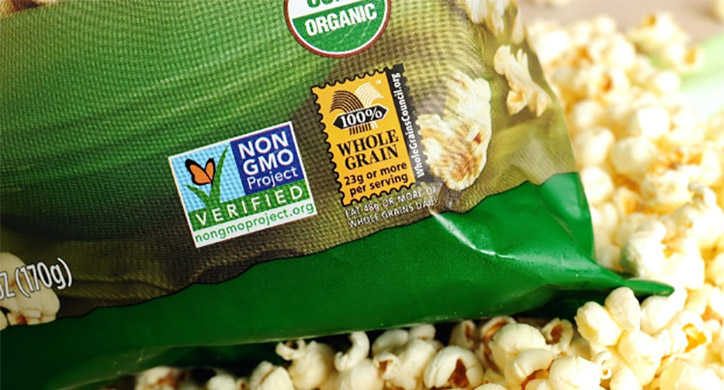
GMO Labeling: What's the Point?
As of July 1, 2016, the state of Vermont requires all foods made with genetically modified ingredients to be labeled as such. While transparency in the food supply chain is typically a good thing, in the case of GMOs it does not make sense from a nutritional standpoint.
